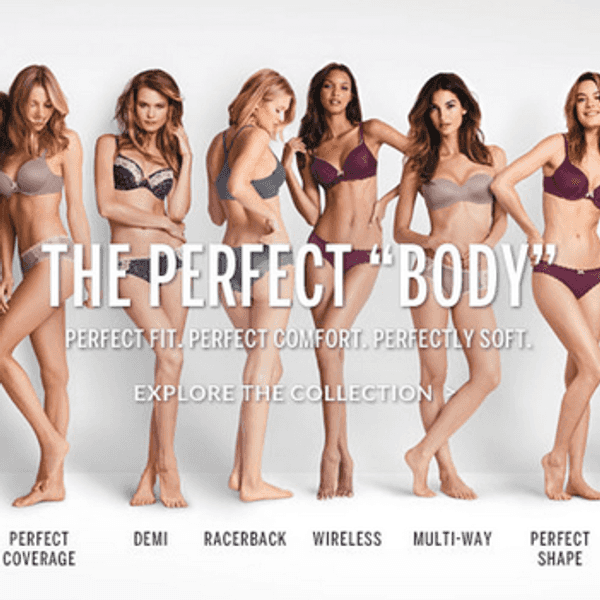There seems to be a tendency in our society for people to care a lot about what other people do, and it's understandable. Humans are usually pretty judgmental, and it shows. From clothes to relationships to politics, we pretty much all have a strong opinion somewhere.
But as a young woman with an eating disorder, one of these judgments has been a massive pet peeve, and that's food.
Here's the thing: our society is obsessed with food.
We've got reality TV shows, restaurants, all sorts of exciting things relating to food. It's how many people connect -- the classic first date is dinner; new college students tend to meet up at the dining hall; practically every major event has food as an expectation.
And there's no way to completely avoid food even if you go nowhere and do nothing. It's everywhere: our advertisements, our media, our conversations. It's deeply ingrained in our social norms and habits. So it's no wonder that so many people have an opinion about food, and tend to have strong reactions when someone eats differently than them.
But we must think about what this means for people like me. Not just people with eating disorders, but people with all sorts of food and eating situations: people with food allergies, religious or other dietary restrictions, vegetarians, vegans, people with medical issues that impact their diet, people whose diets are impacted by low income -- the list goes on.
We've come to a place where these dietary differences are expected and accepted, with most places offering alternative options. Yet at the same time, there is still judgment, bullying, and shaming for what we do and don't eat.
Even without outright rudeness, there's still the glances, the staring, and innocent comments like "Why aren't you eating?" "Why are you eating that much?" "Why won't you eat this?" "You really should eat [this way] instead." Sometimes it's being shocked that someone won't eat your favorite food, and sometimes it's being appalled that someone would ever eat something you find so disgusting.
Growing up as a weird eater, I got a whole lot of commentary from people about my diet. Some of the judgment came from friends or family members, some of it came from complete strangers. My favorites? "How could you NOT like ______?! What's wrong with you?" or "You need to eat more and get some meat on those bones." (Rude. And/or gross.)
Of course, there were plenty of comment variations as well. Many people's opinions came from a place of concern, especially for my health. I was really underweight and did eat the same things over and over again. And there's nothing wrong with being concerned.
But it's when concerned comments cross the line into public shaming that I begin to get mad.
It's largely a result of the assumption that what others eat can directly affect you or offend you, and that (for the most part), is simply not true.
If you are concerned, that's awesome. It's kind. Pull that person aside privately and express that concern. But if you aren't genuinely worried about someone's well-being in the context of their eating habits, ask yourself: why am I choosing to comment on this person's eating behavior? Is it worth my time and their feelings to tease them for the way they eat? Is it my business if that stranger isn't eating when it's socially expected to? After all, if someone doesn't like your favorite food, there's more for you! And if someone eats something you don't like, that doesn't mean that you have to eat it too.
The important thing to remember is that you have no way of knowing the reasons behind someone's diet.
They may have religious reasons for the way they eat. They may have dangerous food allergies or a complicated medical situation. It doesn't mean that they're personally attacking the food you love or the dietary habits you live by. It just means that they don't eat that way, and that's okay.
Even in situations where someone agrees with the social motivations behind an eating choice like veganism or eating Halal, there may be medical reasons for following a different set of rules. I can't even consider restricting anything else from my diet, so even though I don't love the homophobia from Chick-Fil-A, I can't afford to cut that from my diet. And becoming vegetarian or vegan, even though I sympathize with that movement, would be downright dangerous for my health.
Any sort of commentary, bullying, or teasing simply serves to make me feel bad about myself and calls attention to something that I am already really self-conscious about. It's bad for socialization, and it's bad for mental health.
The point is, people aren't what they eat. With so many judgments to make in the modern age, we can't afford to make assumptions based on such a complex human need. We all need to eat. And we all eat differently. Regardless of the motivations behind each eating choice, we must be careful to ensure that we aren't making somebody feel shamed or uncomfortable for doing what they need to do.
At the end of the day, remember you can eat your food and leave everyone else to eat their own -- because it's more important to maintain accepting, healthy human connections than to prioritize our personal biases with eating.





















